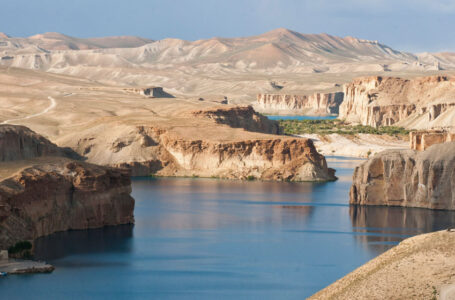Five countries that must take the lead in fighting the ‘Climate Change’ challenge

Clear and present danger – that is, Climate Change or Global Warming as we know it. The debate around this issue has been raging on for several decades in all seriousness, while numerous warnings have been sounded by scientists globally. World leaders have been meeting up and pronouncing agreements since the 90s in their effort to avert disaster, as they will again do in Glasgow in a few days at the COP26 global climate summit, but not enough has been achieved so far.
Climate change affects us all, altering the way of life for present and future generations. To give a glimpse into the precarious situation, in 2021, we have had dangerous heatwaves in Canada and the USA leading to many deaths, devastating floods in China, Europe, Bangladesh where whole towns were swept away, severe droughts in Africa and Central America, Australian wildfires killing 28 people and 10million hectares of land burnt while superstorms ravaged India. The list goes on. According to experts, the single most significant cause of climate change is the emission of greenhouse gases due to the use of fossil fuels for human consumption. Deforestation, industrial farming, drilling for oil and the vast amount of waste generation are also culpable human acts. Naturally, the largest countries with thriving economies are the biggest polluters in the world. China, USA, India, Russia and Japan collectively produce 61% of the world’s entire pollution.
To state in plain words, global climate changes will expedite climate hazards as time passes with the increased frequency of weather-related disasters. Between 2006 and 2016 global sea level rose 2.5 times faster than the entirety of the 20th century. Climate change forces over 20 million people out of their homes every year. And it’s not getting better. Health issues will be rampant in the near future, millions more will lose their homes, the food supply will be disrupted, and thousands of species will go extinct. The future becomes bleaker every day for our children and us.

COP26 is one of the few opportunities that nations worldwide will have to unite and pledge to act against climate change. World leaders need to own up to their responsibility to avert a global disaster that has already started profoundly affecting our lives. The time is now; soon, the damage will be irreversible. Today we look at five key countries that can and should help tackle climate change:

USA
America’s President Joe Biden has shown a strong commitment to international climate action after assuming office. His promise to cut emissions by 50% in the next nine years and the doubling of funds for developing countries has been taken well by activists since the USA holds a key position in shaping agreements for resource transference from developed to developing countries. The leader of the western world is also the second-largest producer of global greenhouse gas emissions and being the largest economy also plays an integral part in swaying pricing signals of energy markets. However, the USA needs to convince other nations to commit more to the cause since countries like China or Australia are reluctant to act more vigorously.

China
With China’s rise as the manufacturer to the world and the second-largest economy, it has also become the world’s largest coal producer and most prominent greenhouse gas producer. Nevertheless, the country has generated hope with its commitment to net-zero emissions and assurance that it will not build any new coal-fired power stations. But worryingly, they also haven’t set a new emissions reduction target since the Paris Agreement, while President Xi Jinping, in probability, won’t be attending the COP26 summit.
However, China’s ambition to tackle climate change cannot be separated from broader bilateral issues like declining relations with the US over human rights or the Taiwan issue. Problems like these hinder global climate change engagements with interested nations who want more decisive action from China. At the same time, the country itself can’t afford to be seen bending to international pressure.

UK
The UK has already taken the lead by announcing its climate targets: reducing 78% of emissions by 2035. They are also at the forefront of diplomatic efforts in bringing up the issue of climate change at various bilateral engagements. Being the host for COP26 at Glasgow this year, they have the added responsibility to set some initial goals for the conference that guides the probability of success and agenda for negotiations at the summit. To add, UK PM Boris Johnson is already under pressure to make the summit a success due to Brexit and the Covid situation mishandling at home.

Russia
Being the largest oil producer globally, Russia also ranks as one of the top five greenhouse gas emitters. However, despite this, President Putin is often averse to acknowledging the risks of climate change while also opposing discussions about the security fallouts due to climate change. Their response to the last two international agreements has been highly delayed. But there is encouraging news coming out of Russia since, in June 2021, Putin announced his latest climate strategy, bringing in new climate laws. Sources also inform that Russia is formulating a new emissions reduction plan and net-zero targets; notably, these developments will provide an insight into the international course of future climate action.

India
With a rising economy and a nation full of youth, India leads the way for developing countries committed to sustainable development and who want to take steps on climate action. Unfortunately, it also is the world’s third-largest greenhouse gas emitter. Though India intends to invest in renewable energy, it has set no new targets since the Paris Agreement. India’s climate action path and serious cooperation and the Glasgow summit’s success rate will be determined by the willingness of developed nations to fund the energy transition for developing countries to shift from the usage of fossil fuels.





